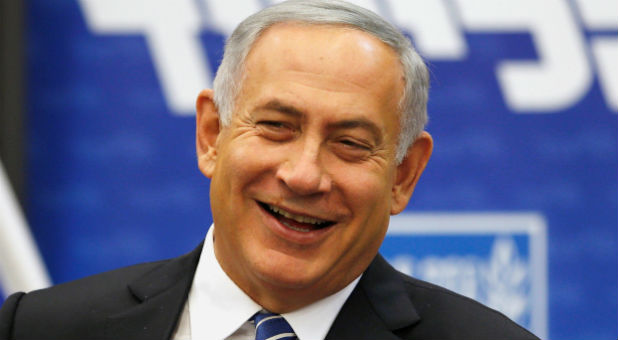The Reason Israel’s Netanyahu Will Not Meet With Palestine’s Abbas
Israeli Prime Minister Benjamin Netanyahu said on Wednesday that he had told French President Francois Hollande he would not meet Palestinian leader Mahmoud Abbas if France pushed ahead with an international peace conference in Paris later this month.
France has been trying to convince Netanyahu, who has repeatedly rejected the conference proposal, to meet with Abbas in Paris to try to revive moribund peace talks between the two sides, Foreign Minister Jean-Marc Ayrault said on Wednesday.
“Netanyahu told Hollande that if there will not be an international conference in Paris, he will come to meet Abu Mazen (Abbas) for direct talks without preconditions,” the statement said Netanyahu told Hollande.
“Israel will not participate in an international conference that will not contribute to achieving peace,” it added.
Paris has remained determined to stage the conference. It believes that bringing the two leaders to meet with Hollande a day after the conference would be a way of circumventing Israeli accusations that the French initiative aims to impose a multilateral solution.
“We have to recreate the conditions for a two-state solution and we are determined more than ever to do everything to implement our initiative. The sooner the better,” Ayrault told reporters at a news conference with his Spanish counterpart, Alfonso Dastis.
Ayrault confirmed that invitations had been sent to Netanyahu and Abbas to attend a face-to-face meeting. Diplomats said that Hollande was also planning to call U.S. President Barack Obama to discuss the issue.
Abbas spokesman Nabil Abu Rdainah said the Palestinians welcomed “any French effort to salvage the faltering political process.”
France has repeatedly tried to breathe new life into the peace process this year, holding a preliminary conference in June where the United Nations, European Union, United States and major Arab countries gathered to discuss proposals without the Israelis or Palestinians present.
The plan was to hold a follow-up conference before Christmas with the Israelis and Palestinians involved to see whether the two sides could be brought back to negotiations.
The conference of foreign ministers was aimed at agreeing on a joint statement that would reaffirm the two-state solution on the basis of pre-1967 borders and according to Security Council resolutions, diplomats said.
The last, U.S.-backed talks ended in failure in April 2014 and the outgoing U.S. administration appears unwilling to tackle the issue before President-elect Donald Trump takes over in January.
With Obama wary of being seen picking a fight at a time when he hopes to persuade Trump to preserve parts of his legacy, including the Iran nuclear deal, Obamacare and the opening to Cuba, it is not clear whether the United States will attend a new meeting in Paris.
If they were not to attend the chances of a conference taking place would be slim, a French diplomat said.
In New York, diplomats at the United Nations said Arab state ministers were due to meet next week to discuss a Palestinian push for a U.N. resolution on settlements and were likely to decide the content of a draft text and when it would be circulated to the Security Council.
Diplomats said New Zealand was also working on a draft U.N. resolution on the Middle East peace process that would reaffirm the Security Council’s commitment to a two-state solution. {eoa}
© 2016 Thomson Reuters. All rights reserved.







































